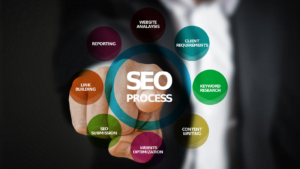22 Easy Ways To Speed Up Your WordPress Site in 2022

How to Speed Up Your WordPress Site
If you’re looking to speed up your WordPress site, there are a few things you can do.
1. Run performance tests.
First, you should run performance tests to determine where your site spends the most time. This can help you optimise your site for faster loads and better performance.
2. Choose a reliable hosting provider.
One way to speed up your WordPress site is to choose a reliable hosting provider. Ensure the host has a good reputation and is regularly updated with the latest security patches. Choosing a host that offers backup and disaster recovery services would be best.
3. Update everything.
Keeping your WordPress site up-to-date is essential for security and performance. Make sure you install all WordPress updates, including the latest security patches. If there are any problems with an update, wait for a fix before proceeding.
4. Use the latest version of PHP.
Use the latest version of PHP. WordPress now uses PHP 7 by default, which is faster and more secure than earlier versions. If you need to use an older version of PHP, be sure to upgrade as soon as possible.
5. Delete unused plugins.
Speed up your WordPress site by deleting unused plugins. To speed up your WordPress site, delete any unused plugins. This will not only reduce the size of your plugin files on disk, but it can also free up processing power and memory on your server.
6. Install high-quality plugins only.
Make sure you only install high-quality plugins. This will help keep your site running smoothly and prevent potential conflicts or issues.
7. Use a lightweight theme.
Not all themes are created equal; some can be heavyweight and slow down your website. Instead, use a lightweight theme if possible. They tend to be faster and more manageable because they don’t include all the features and functions of more powerful themes.
8. Optimise images.
Optimise your images. One of the quickest ways to slow down your website is by loading tons of images. Instead, try using smaller files that load faster and take up less space on your server.
9. Try lazy loading your content.
One way is lazy loading your content. This means that the content is loaded only when needed, which can speed up your site by reducing the number of requests made to the server.
10. Don’t host videos on your server.
If you’re a WordPress site, you likely know that hosting videos can slow down your site. If you’re using a video hosting service, you will load faster and save money on hosting fees.
11. Reduce CSS and JavaScript file sizes.

Reduce CSS and JavaScript file sizes: Reduce the number of files your theme or plugin uses. This will speed up loading times and decrease page load times.
12. Install a WordPress caching plugin.
One of the simplest is to install a caching plugin. There are many available, and each one will optimise your site differently. In addition to caching, you can optimise your images and remove unnecessary files from your site.
13. Simplify your page designs and content.
To speed up your WordPress site, simplify your page designs and content. This will decrease the time it takes to load your site and make it easier for visitors to find what they’re looking for.
14. Tidy up your WordPress database.

Tidy up your WordPress database. This will help speed up your site by freeing up disk space and improving performance.
15. Limit or disable post revisions.
Limiting or disabling post revisions may be a good solution if you’re looking to speed up your WordPress site. By default, WordPress allows users to make unlimited revisions to posts. However, this can slow down your site significantly if not done properly.
16. Avoid redirects.
Avoid redirects. When a page on your website requests a new URL, WordPress will automatically create a temporary redirect to the new URL. This can slow down your site because it requires more processing time and resources from WordPress.
If you need to redirect pages frequently, consider using a plugin like a Redirect Manager to automate the process.
17. Turn off pingbacks and trackbacks.
One of the quickest ways to speed up your WordPress site is to turn off pingbacks and trackbacks. These features let other websites share content with your readers without sending the information back through your website. Instead, WordPress sends the information directly to the reader’s browser. This can slow down your site by causing it to send more requests than necessary.
18. Use a CDN.

One option is to use a CDN. A CDN (Content Delivery Network) is a server network that stores and delivers web content for websites. When you use a CDN, WordPress downloads the latest version of the plugin or theme from the CDN instead of from your website. This speeds up the loading time of your site.
19. Limit external scripts.
Remove anything that isn’t needed from your theme or plugin files. This includes scripts from 3rd party services like Google Analytics, social media buttons, and contact forms. Instead, use shortcodes or dynamic content to load these features quickly.
20. Don’t fall victim to hotlinking.
Hotlinking includes another website’s URL in a web document, such as in a blog post or comment. While it may seem harmless, this practice can quickly cause your site to become bogged down by duplicate content and heavy load times.
Instead, use unique anchors (URLs with the word “blog” or “post”) for each post or article so that readers can easily find the information they’re looking for.
21. Schedule tasks for low-traffic periods.
By default, WordPress runs asynchronously, which can lead to your site feeling sluggish. To free up resources and speed your site up, you can schedule tasks for low-traffic periods. For example, you could set a daily task to back up your site’s content or run a security scan.
22. Paginate comments.
Paginating comments on a WordPress site can speed up your browsing experience. By default, WordPress paginates comments based on the number of replies. You can disable pagination by setting the “paginate_comments” option to false in your wp-config.php file.
Conclusion
In conclusion, you can speed up your WordPress site in many ways. Some of these methods require no extra work, while others may need some extra time to implement. Here are some reasons why WordPress site speed is important:
- Users will abandon a slow website before they ever visit it again.
- Slower websites can lead to decreased traffic and revenue.
- Web page loading time is one of the users’ most important factors when choosing a site to visit.
- Slow websites can also cause people to switch browsers or search engines, which can negatively affect your business.
Was this article helpful? Let us know in the comments.
FAQ
How to Check Your WordPress Website Speed?
- One way to check your website speed is to use Google PageSpeed Insights. This tool measures how quickly your page loads and provides recommendations on improving your page’s performance. However, this tool is only available for websites that Google hosts.
- Another way to check your website speed is to use Pingdom Web Speed Test. This tool measures the average response time for different pages on your website and provides recommendations on how to improve the response time for specific pages.
How can I speed up my WordPress site without a plugin?
You can speed up your WordPress site without resorting to plugins.
- For starters, try disabling unnecessary features and removing unused files.
- Ensure your blog is hosted on a fast server and optimise your CSS and JavaScript files for performance.
- Keep an eye on your site’s loading time and make any necessary optimisations. By following these tips, you can help improve the overall speed of your WordPress site.
What affects WordPress site speed?
WordPress is a popular content management system (CMS) used to create websites. The speed of a WordPress site can be affected by many factors, including the theme used, the plugins installed, and the size of the site.





